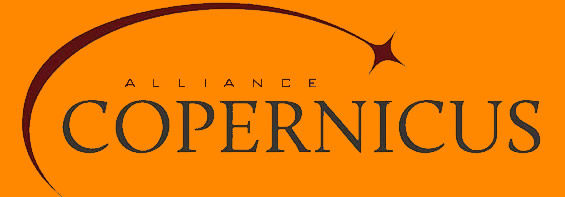
OnTL is a new Erasmus+ project focusing on exploring the possibilities and limitations of transformative and online learning. One of the key roles of the CA in the project is to convene a group of experimenters willing to try out and reflect on approaches and methods of transformative learning in a virtual environment. We are looking for volunteer higher education educators to take part in a program of experiments, broadly in the time-frame January-September 2021. We expect this to be a fun and deep learning experience – do you want to join the group?
Do you now do all or part of your educational work online? Or are you planning to do so next year? If so:
- Have you discovered or developed new ways of working online that you're prepared to share with others for further experimentation?
- Have you encountered or do you anticipate difficulties in working online, and would like tips from others?
- Are you curious about what other educators are doing?
- Are you willing to keep a log of your experiments and their outcomes, and to share in our community of learning teachers?
If so, we'd love to hear from you.
This program is part of an EU project, OnTL, with the objective of producing draft guidelines by the end of 2021 about how to design, prepare for, and deliver transformative learning programs online. The project is led by Legacy17 and implemented by three other organisations: COPERNICUS Alliance, Visionautik (Germany) and Isoropia (Croatia). One of the key roles of the CA in the project is to convene this group of experimenters willing to try out and reflect on approaches and methods of transformative learning in a virtual environment.
More about "OnTL: Pushing the boundaries of online transformative learning" (description from the project proposal):
CONTEXT
Through our work in the soon-to-be-completed project ”Transformative Learning”', we have become aware not only of the key importance of Transformative Learning in a time of rapid and far-reaching change, but also of the steep increase in demand for online learning opportunities. This trend has accelerated sharply in response to the COVID-19 pandemic. Online delivery is particularly challenging in a transformative context because so much hinges on personal qualities that have traditionally been conveyed face-to-face. The transformative quality of adult education will in several ways shape the future of Europe. To the existing critical challenges of climate change, sustainable development, increasing migration, precarity of employment and of food regimes, has been added the abrupt need to face the COVID-19 pandemic and, not least, to discover ways to build a more resilient society in its aftermath. In order to survive and thrive, Europe will need to engage broad swathes of the population in the search for viable transnational transformative solutions. Increasingly, this engagement is understood to encompass online learning opportunities.
PARTNER GROUP
We have assembled a parner group with broad networks and with unusually long experience in both transformative learning and in online delivery of adult education programs, including the Higher Education sector. We will collate experience with different forms of online delivery in order to explore and conduct brief experiments with different approaches and methods. To this end we will
- bring together/consolidate the work of the partners, and seek out others with similar interests,
- explore the opportunities and limitations for TL online, also engaging non-partner networks where appropriate,
- publish and publicize our findings - IOs - consisting of a) Guidelines for program design, b) Support for effective delivery of programs.
We plan that at least three educators from each partner organization will be actively engaged. Further, each partner will inform and invite its members, member organizations, client base and trainees to participate in one or more of three roles: As a source of input to the IOs, As participant in one or more experiments proposed by the project, As recipient, user and potential disseminator of the results/IOs. In this way we anticipate that at least 100 educators will benefit from the work during the project period. This is an exploratory project which will result in practical materials reflecting current state of the art concerning both design and delivery of online transformative learning events.
METHODS
1. Desk research to collect and collate current best practice.
2. Design and implementation of small experiments to be incorporated into already-planned programs, to assess the potential of specific methods and approaches to enhance the impact of the programs concerned.
3. Collaborative synthesis of the outcomes of the research and experimentation into two IOs, one concerned with program design and the other with program delivery.
LONG-TERM BENEFITS
Direct long-term benefits will accrue to the partners through improved knowledge, competence and skills to design and deliver online programs for transformative learning. Less directly, we expect benefits to other networks and organizations engaged in adult education in the form of better methods and skills; and an emerging catalogue of questions for either academic or action research, which the partners are well placed to make good use of.
